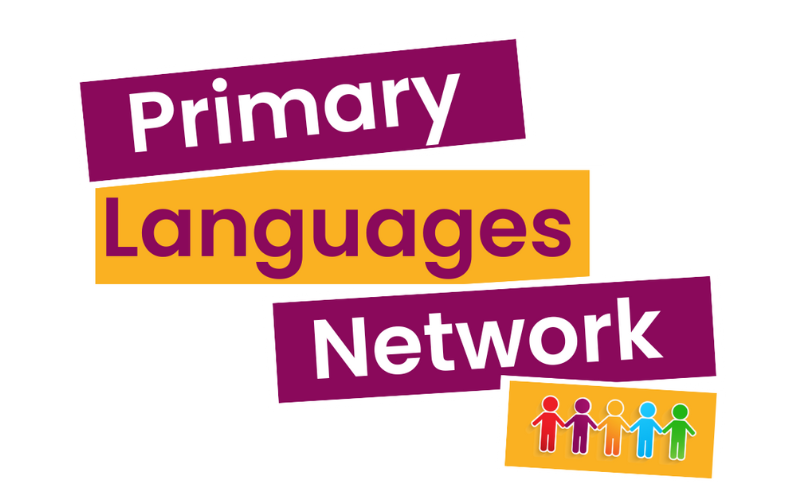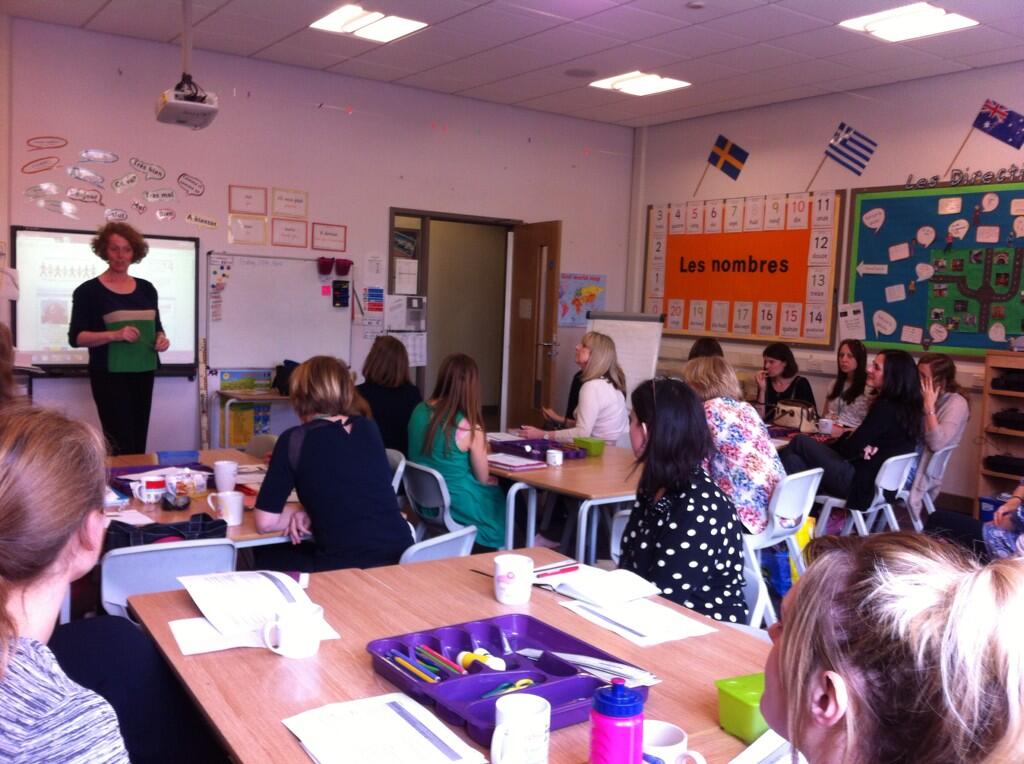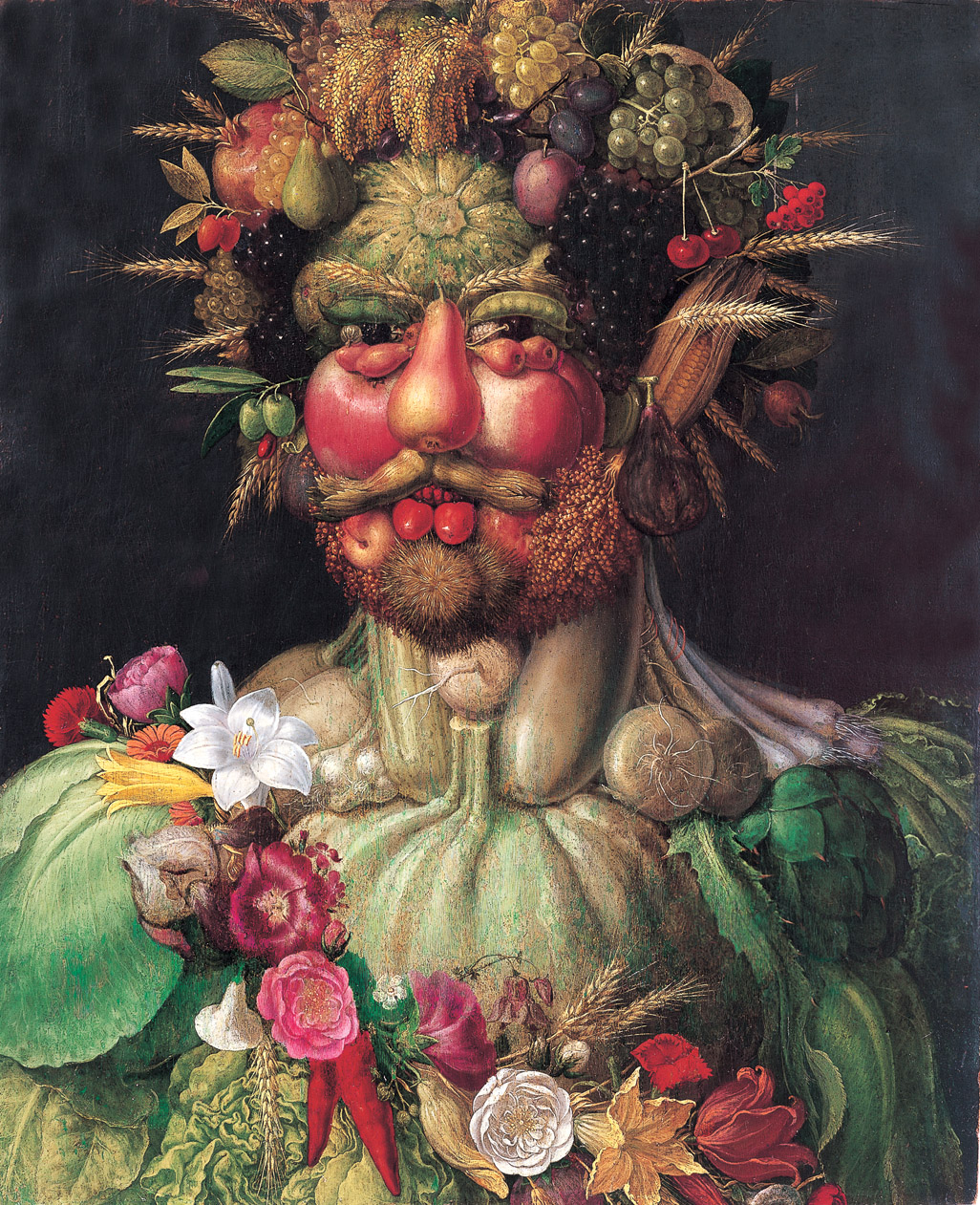[<a href="//storify.com/JanetLloydnet/keeping-the-primary-in-language-learning" target="_blank">View the story "Keeping the Primary in language learning " on Storify</a>]
CPD and food for thought on primary language teaching and learning
So what did we learn yesterday at the conference?(JLN2014)
Well ....
Well ....
- First and foremost the importance of networking and working together and having strategic direction to support us.
- We have networks within networks but they are all held together and moving forward. We are fortunate enough for example to have networks of language learning teachers, networks of subject coordinators, some cluster networks,associate language assistant and teacher networks and schools.....
- Teachers need to meet , to share ,to listen , to learn . Yesterday demonstrated this so clearly.Emails this morning say how great it was to go away with practical ideas, to have taken a different look at an area that already exists in school or is a new challenge and to have met familiar faces and new friends.
- There is a great deal of good practice and knowledge out there around primary language learning that when it comes together in one place can allow everyone to see the bigger picture.
- The power of social media to share with colleagues who couldn't be at the event but can take a close look at the event and follow the strands of the conference back in school
- Teachers take ideas and make them their own- again this morning the emails say that teachers are thinking of ways to use Clare's mini-books, are already trying out Julie's phonics ideas, want to share with their class Emilie's two selected APPs for speaking and have practised Joanne's warm up greeting song in French, Spanish and tried to put it in German!
The big picture to take away from the conference:
- Song ,games and short burst activities keep all the children engaged and allow us to practise and revisit familiar language and build children's language knowledge.
- Songs are engaging for all ages and stages. It's what,how and why you use them in your lessons that matters.Delivery , joining in and performance bring them to life and make them stay in the memory!
- Phonics play a huge role in the development of both children and staff's confidence to be able t work with an unfamiliar target language
- Phonics should be a shared learning approach throughout KS2 and also in our schools where we teach languages in KS1
- Phonics is a one of the major keys to unlocking the reading code of a target language and helping to solve the mystery of |"I am no good at languages!"amongst teachers and children
- Physicality in learning and the use of drama and mime allow children to operate in a target language beyond repetition for repetition's sake
- Time to try, talk and share is paramount to disseminating good practice
- Teachers do focus on reading and writing and should b be encouraged to look for creative ways to read and write and this is not always reading authentic literature or writing the word down
- Creative written outcomes such as mini books lend themselves to whole class activities ,imaginative use of simple target language sentences and a focus by each individual child on basic grammar
- Teachers and children love story books that are engaging with great graphics ,well designed, have purpose,link to the learning content and contexts, lead to creative outcomes and can be read again and again!The raffle prizes had purpose below .. as each book links to a context and content that teachers will plan to teach next year and guess what they can share their teaching and learning at a Spring network meeting!
- APPs can make a difference to children's accuracy in speaking and writing, when they are chosen for a real and specific reason and the outcome is a quality product that can be shared and revisited. APPs can support teachers to encourage children to maximise potential in a target language.
- Using clips that are available to us on the internet to bring a city or a place to life for the children such as Emilie's virtual tour of Paris, add interest and purpose and a deepening understanding of the target language country at an age appropriate level.
Food for thought for myself and maybe for others about the future of primary language teaching and learning and the workforce we need to engage to achieve this.
- Yesterday at the conference there were colleagues who speak a foreign language well , are native speakers , have a degree in languages,were trained as specialist primary languages teachers, have an interest in languages,are keen to promote languages in their own schools, are improving their own language,identify their own strengths and weaknesses in a foreign language
- Each colleague was there because s/he has an identified role in school to deliver effective primary languages. Each of them was engaged, looking for own next steps, found support from colleagues, engaged in healthy debate about best next steps and left the conference with a positive next step in mind.
- Primary languages is about engaging the whole community of learners no matter what level or experience they have in language learning and allowing individuals to thrive with as much support as they need to do so.
- Networks within networks, support for everyone,clear goals and achievable next steps all come to my mind .... helping everyone to feel that they can be part of and contribute to the agenda and providing them with the building blocks to succeed.
Full circle progress together
I don't think you become a teacher without wanting to share and watch and support people of all ages develop. Teaching languages is in my opinion a joy!
Watching colleagues and schools rise to the challenge of primary foreign languages,succeed and breed success is probably one of the most rewarding things I have ever done.
I think there are quite a few colleagues out there who would agree with these sentiments.
Getting ready for our conference next week and reflecting on what we are achieving as a diverse group of schools and individuals , Kate's email popped in to my account and this came to mind....full circle support and making progress together.
Meet Kate !
I met Kate as she changed career. She had a degree in languages and the ability to speak fluent French and Spanish. Kate decided to become a primary school teacher and her background in English and Drama helped too in making this decision.
At the time I was the languages consultant for Warrington LA , but our paths had crossed before as she had attended the same High School where had taught French and German, from where I took groups of A Level language students out to the local cluster schools to develop drama and primary language workshops .Like myself Kate had always loved Drama and made the natural links between languages and performance.She wanted to train as a primary teacher with a languages specialism - but wanted to be sure first .
So for one year in 2006 -7 Kate worked for the Language Assistant Programme in 5 different primary schools in Warrington with myself .To this day I remember her skeleton rap with Year 5 in French and we still use Kate's culture and counting power point! A year later she trained to be a primary school teacher.
Since then our paths have crossed at local support group meetings and at our local conferences. Kate found a job in a school where language had a good profile and an excellent MFL Coordinator Mel Cowap(also with a primary languages specialism PGCE as her training).
Now meet Mel!
Mel encourages staff to participate,has set up a meaningful programme of study filled with wonderful ideas and resources and goes out of her way to find ways of linking language learning across the curriculum.Just before Kate joined the school I accompanied a group of Primary Heads to Dijon on a Headteacher to Headteacher link ,set up by the British Council .The school established a link with a primary school and have really pursued this link- important if you want to keep it alive.In the first year they did a playground to playground comparison for example.
A year ago I sat down with Mel to discuss the visit from French primary children from Dijon to the Warrington Primary school. She had set up a treasure hunt round school for all the Year 5 and 6 French and English children and was in the process of going through letters of application from the Year 6 children to be guides and buddies for the day for the group of visiting Dijon children. Mel has been on maternity leave this year and Kate has overseen the languages. I love the joined up thinking and the strategic approach to developing languages.Indeed this is a school where all those years ago (between 1998 and 2002) I took sixth formers to develop hands on drama and languages workshops in French and German!
So now we have come full circle. Kate has a little boy and works part time. She also works with ourselves once again as well ,one afternoon a week. Mel is back at work and will be at our conference with Kate next week! Their passion is most definitely primary languages but they are first and foremost primary classroom practitioners at Broomfields CP School.
At the weekend I sent out an email to ask my associate colleagues to consider areas of progression in primary language learning . You can read about this here.
Kate's response was about her own Year 4 class at Broomfields CP that she works with all year round as a primary class teacher job share. She delivers their French language learning too. When I read what she wrote I decided that this was a message for my blog. The children are making progress with the class teacher that they trust.The progress is in place and Mel( the coordinator at the school) has put in to place a system of learning that guides this. Kate has implemented and encouraged the progress this year and the children in her own class are making very good progress.Remember that the progress they make is based around singing , games, drama, story, creative work across all four skills and as e can read the children are making simple progress in their understanding of grammar and their knowledge of France via their link with Dijon!
This is what she says:
In terms of progress my year 4 class has increased their ability to listen for specific sounds and words, write simple words and phrases on whiteboards, in air writing, in greetings cards and a through writing a letter to a pen friend. Their speaking confidence has grown in terms of transactional language (asking and answering questions) which we use as much as possible throughout the course of the lessons and in terms of picking up new words and phrases. When meeting new vocabulary and matching the words with their definitions,the children will automatically look for cognates and near cognates and will readily use these technical terms to describe their strategy.
They will then look out for words already known or which can be worked out, paying attention to any faux amis (false friends) which, as language detectives, they need to be suspicious of! Then, lastly they will use process of elimination.
At this stage, the children are aware of grammatical rules such as there being more than one word for 'the' in French and that the adjective usually comes after the noun.
In Year 4 we have also increased our cultural understanding by looking at the city of Dijon, where we have a link primary school and how it compares and contrasts with our own home town. The children have used bilingual dictionaries to look up nouns and adjectives.
The next steps for these learners will be to revisit and review some key phrases and vocabulary at the start of Year 5 then to move on to new content areas of language. They are going to listen to more complex words and phrases and have the opportunity to read longer phrases and texts in French. They will also work on speaking more at length, expressing opinions and will practise short presentations to perform in front of the class. To add to their knowledge of grammar, the children will meet regular (and some irregular) verbs.
And what does this progress look like in practise in the classroom as teaching and learning?
Here is a report from our Network News from February 2014. The school had a primary BEd ITT with primary languages as her focus.She spoke some Italian too and the teacher and the student linked her knowledge of Italian with French and also German and spent a day at the end of the half term celebrating the languages of the Winter Olympic Games. Once again it's about team work, sharing and networking.
Here is the brief report ..
"Co-ordinated by class teacher and MFL teacher Kate Percival and BEd student Jenny Pimlott, the three Year 4 classes at Broomfields took part in a rotation of activities, experiencing German, Italian and French!
On the first day of the Winter Olympics in Sochi, Year 4 were shown videos of what kinds of sports to expect to see and learnt their names in German whilst adding actions, going on to play Simon Says (Max sagt...!) and a splat game against an opponent. They then looked at the kind of useful and non-useful clothing you would take with you to the games and played Quiz Quiz swap with the words in Italian and the pictures of the items. The children also solved a mystery in French about which sport Marie wished to see in Sochi and each child wrote a sentence in French on their own Olympic gold medal to take home as a souvenir of their day. They finished by enjoying singing and dancing to J'aime skiier...'.' skiing song!
It's a long time since 1998 when a foreign languages teacher with her group of sixth formers went into local cluster primary schools for the first time.
It's been for a long time that I have had the honour of working with the Head, Mel and Kate from the school.
It's a long time since Kate first asked could she join the language assistants ' team.
Strikes me it's all about support ,networking and sharing!
What has continued all the time is the support:
- support I received from line managers to go out and trial primary languages and drama,
- support the primary heads gave me with the drama project,
- support I received when I became a languages consultant
- support that Kate received as she went in to local primary schools to be a language assistants
- support of Mel for Kate and Kate for Mel
- support for a training teacher, to see and feel what primary languages can really look like
- support of a network and the individual links schools and teachers can make with each other
A year in a network
Our annual conference is next week 17 June and it will be
our 11th conference …since 2011 as Janet Lloyd Network and before as
Warrington LA.
We have grown and developed together. There are mini –groups
within our community: the “Upskillers, the Spanish teachers, the Co-ordinators,
the supportive SLT, the links abroad schools, the whole staff training and
trainers, the JLN associate language teachers, the bloggers and tweeters (!!),
the transition groups and the children.
Have you considered the impact of your commitment and hard work?
How many children learn a primary foreign language locally?
A few weeks ago I worked out that for example on an average Wednesday, 2,000
KS1 and KS2 children in our network learn a primary foreign language!
A
remarkable achievement ,which is very
much all down to the network member schools and their commitment to primary
language learning.
We have schools that are enhancing learning, schools that
are steadily developing their language learning and schools that are beginning
or restarting their language learning. Each school contributes to the whole
network and the subject coordinators are definitely key.There are now 90 of you in total!
This
year we set up Network News to share within and outside the network, practical
and creative approaches to a whole year’s language learning.
Up to this point
it was just the associate language teachers and myself who could watch the whole picture take shape every academic
year.
Here is a just a taste of the activities and ideas the network members have developed to engage their children in purposeful language learning between September 2013-June 2014…. And I am certain we will do more yet
this year and I am looking forward to all the wonderful ideas still to come ,based upon the World Cup, Tour de France the Commonwealth Games, the beach, the
circus, the puppet shows, Summer celebrations etc!
Thanks to all network members!
Subject Coordinators ' CPD
Throughout the year you have met in your mini-groups and kept in touch by email, Twitter and the website. The three Subject Coordinators’ CPD sessions have been hugely successful and informative with 52 schools attending the three sessions over the year.
Local support group twilights
We have held our regular local support group twilight meetings, this year about Playground
So what has happened this year?
September
Many of us celebrated European Languages Day by launching
our learning aspirations revisiting simple language , making and flying kites
and investigating international kite festivals such as Berck sur plage
From KS1 to Year 6 you shared your kite displays!
Thanks to St Elphin's for the original idea !
St Margaret’s CE learned and sang the chorus of “Let’s go
fly a kite” in French for a whole school performance!
Other schools held whole school celebration days
and parents’ assemblies.
Alderman Bolton for the second year running invited the parents in to school to try out some language learning.St Lewis' linked up with pupils from the local high school to set up a French market in the school hall and many of you had language investigation days !
October
Rainford CE held Spanish spooky goings on in their language lessons.Lots of you took your children on virtual autumn walks with our colour and sound poems and St Philips Year 5 produced a wonderful display of their own Autumn term poems
Some of our schools
focused this year on developing grammar with UKS2 and in October we worked on wizards potions with the verb to have….and the children created their own poems , like this one above from Cinnamon Brow CE.
November
Schools with links abroad were busy getting their Christmas
gifts ready or developing learning projects via Skype.
St Oswald’s involved the whole community in gathering local
documents, photos and evidence to share what the area they live in, looked like
in a by- gone time and shared this with their Spanish link school for their "My home,
your home" project.
We held our first of the three LSGs... and were filmed at Stockton Heath by the BBC!
December
The creative ways to celebrate Christmas in a target language that you all came up with,were amazing. You can read about them all here on Network News!
St
Bridget ‘s combined their Christmas carol fundraising with their French language learning, St Ann’s
CE Warrington held their annual whole school ”Bûche de Noël with French instructions session.
The KS1
children at Bruche CP and Evelyn Street put on their Spanish performances
of Goldilocks and the Three Bears.
St
Elphins created their own versions of the chocolate Spanish clapping game,
changed to café au lait and we tried it out at our Associate Network Teacher
Christmas party as a Saint Nicolas forfeit!
January
Everyone loves the alien family and they arrived in Year 4
as usual during January. Cronton CE on
their first day back were treated to a Roscon de Reyes made by Mr Thomas ,
himself
...and many of us woke up one morning in January to
find out we had been on BBC Breakfast News , filmed during one of our Autumn
LSG CPD sessions!
February
It’s carnival time! There were monsters and masks and fancy
dress .
Westbrook Old Hall and Plantation CP went to town on monster descriptions and grand monstre vert story, performance and displays.
Birchwood CE created Arcimboldo fruit faces.
Dallam created their own
Spanish omelettes as part of their Spanish healthy eating unit !
And Broomfields CP went on a virtual tour to the Winter Olympics practising their French and learning some Italian on the way! At the end of the virtual tour they received their own gold medals too!
And Broomfields CP went on a virtual tour to the Winter Olympics practising their French and learning some Italian on the way! At the end of the virtual tour they received their own gold medals too!
March
Well it was World Book Day followed quickly by Mother’s
Day. Emilie’s Year 4 at
Culcheth learned and performed rhymes about the family ,which they made in to
raps using Autorap and shared these with a school in Kent!They loved appearing the local press too!
April
Throughout the year the HODs at University Academy and
Birchwood High have been getting to grips with what transition means to them.
In April we had a fabulous cluster meeting with the Birchwood cluster to plan
for Summer Year 6 and to begin to move one more step forward with what language
learning in Autumn Year 7 will look like.
We held our own Show ,Tell and Share in April at Stockton
Heath and the simple ideas from eight different schools helped us all to build
our own bank of ideas and activities! Thanks to everyone who took part – no
matter how nervous you were, you were fantastic!
Easter to end of May
After Easter Latchford CE Year 6 who had have spent the year getting
ready for their trip to Malaga,went and had a great week with their partner school! It was a huge success and as I write the
Year 6 from Malaga are here on their return visit.
Twiss Green with Miss Browne have been on a virtual trip to South
America and linked their geography with their language learning….
This is just the tip of the iceberg !
You have shared and
achieved so much this year!
And now we are in June …. And it’s conference time again!
Here’s to another successful academic year !
Laying the foundations for future language learning
Laying the foundations for future language learning……
Our
Show Tell and Share
Yesterday we held our “Show tell and share” network meeting (24
April 2014) in Mandy’s language room at Stockton Heath Primary School,
Warrington.
40 primary school colleagues attended the event .Eight colleagues
had been invited to share ideas, or a
simple practical sequence of lessons in short 5-10- minute presentations.
It’s important to understand that the colleagues who were
brave enough to show, tell and share are primary language practitioners who
deliver languages in their own schools every week of the year- one Head
teacher, three primary classroom teachers, three teaching assistants and a
visiting teacher.
They represent a cross section of 90 schools in the network and different
stages of primary language progress (starting off, moving on and established practice). Most importantly the ideas were practical and replicable and
teachers and teaching assistants in the audience could take ideas for primary language learning
back to their own schools and try them
out.
Illness and monsters
Cathy, from Appleton Thorn CP shared all her creative ways
of developing a unit on illness and parts of the body. She stressed the
importance of sounds and recognition of the spoken word before showing children
the written word. She explained how she feels that this is necessary to enable all children to make the link
smoothly between spoken and written language. Her focus on sounds and patterns
and investigating the words helps her children to confidently use the words and
find new language they want to say in dictionaries etc. Cathy encouraged us to
ask children to look for cognates and near cognates and to link games and practical
work with more creative art and design opportunities.
In this sequence of activities
Cathy was using work around fantastical creatures – Frankenstein type monsters to engage the
children in learning parts of the body so that they could then develop role
plays on familiar everyday matters – going to the doctors and explaining simple
illnesses.
E Twinning Project
with Spain
Ian from Cronton CE, one of our Knowsley schools, shared how
the school had developed an ETwinning project with their new link school in
Spain .The school already has an established link with a German school.
The
project was for Year 3 in their first year of Spanish and was based around learning
simple weather phrases. Ian’s input was the language element and the
coordination with the Spanish school.
Every day of each week that the project was happening(Autumn 2013), the class TA worked with a different group of 4 children to record in Spanish the temperature, the weather and dressed in clothes appropriate to the weather to create a photo record .
At the end of each week the group created the class weather report in Spanish plus photos via Pic Collage and sent this by email to their Spanish school.
The mail exchange
of the Pic Collage reports raised all sorts of interesting points for example
what were the Spanish children doing roasting
chestnuts in the playground for a chestnut festival instead of an ordinary
school day! Ian’s project show how we are opening the door on new cultures and
laying foundations and interest in purposeful practical future language learning The verb être
Sam from St Philips CE got us thinking about how easily we
can integrate work around verbs into our everyday language learning in the
primary classroom. She has just run a focus on the verb être as part of the Y6 children’s work on “Who am
I? We loved the video clip she sourced and used and the simplified rap song she created with
the children from the French language in this clip
The children created spider grams of the verbs for example using a sunshine and the beams off a sunshine to show the infinitive of the verb to be and its present tense parts
Sam organised the children in groups of 6 so that they could record themselves introduce one another using the verb être and all its present tense parts.She appeared in all the clips so that the children could understand why and how to use “vous êtes” accurately .We were impressed how all the children participated and could use the different parts of the verb! Simple effective use of technology which lays the foundations for future grammatical language learning in KS3.
(Sam will share more from this project soon on network news )
I love this photo of Ian and Emma deep in conversation. Emma
is a French coordinator
Mr Potato Head
transferable games
Karen from Cinnamon Brow CE talked with us about her work
using Mr Potato Head to reinforce familiar language on parts of the body. The
activities were obviously transferable and at this point teachers who work
alongside visiting teachers were animatedly jotting down ideas they could use
to follow up or reinforce language learning.
For example everyone loved the Mr
Potato Head photo shoot that Karen had created (and one teacher said to me “I
will get my children to do this”).
They liked the use of the same pictures for simple hide and
reveal – not high tech but practical and hands on , using A4 envelopes to
slowly reveal Mr Potato Head. Karen suggested that the children can play this
again afterwards on their own. Taking
the familiar primary “hide and reveal” technique again , Karen shared how she
would ask the children to anticipate what missing facial parts there may be on
Mr Potato Head in each new game .Simple, effective and activities we could
transfer from one core focus to another
and that encourage the participation of all children and understanding ways to
make learning fun.
Everyone shares!
Then it was time for us all to share- something that they
use in their everyday work as primary practitioners of foreign languages!
and she was keen to learn as much as possible about E Twinning and next steps for her school!
Human sentences and
position of adjectives
Christine from Westbrook Old Hall had taken the time to
consider a sequence of five lessons on monsters she delivered in the Autumn
term 2013 with Y6
The children in Year 6
revisited their prior knowledge of
body parts, number, colours from previous years in KS2 and discussed and
demonstrated their understanding from Y5 of the position of adjectives after
the noun .Her focus in Year 6 was to look at the position of adjectives such as
grand and petit before the noun and to
encourage the children to speak and write accurately using their knowledge of
adjectival agreement. She used Singing
French and the monster song to reinforce prior knowledge and to encourage performance.
The children looked at the adjectives grand/petit and the position they appear
in French sentences and worked out what was different here to adjectives of
colour.
Christine read Grand Monstre Vert with the children and they
investigated the position of the adjectives
in the sentences .
They played human
sentence games ordering
the words in
French human sentences.The slide shows how she used a ppt slide
to first ask the children to create verbally sentences in French from an
English stimulus and then revealed the sentence written correctly on the
monster slide.
At this point Emilie,our native speaker visiting teacher-
formerly a secondary teacher tweeted ……….
Really nice to hear primary MFL teachers / assistants mentioning grammar & dictionary skills as part of their teaching #showtell
— Emilie Woodroffe (@EWoodroffe) April 24, 2014
Town investigations with young learners
Lis from St Ann’s CE and Mandy from Stockton Heath CP talked about the town and how they created their two sequences of lessons based on shops in the town and directions.
What was fascinating was how both of them identified key points to
consider – very practical primary points. They considered the experience,
maturity and age of their primary learners carefully as they planned the
activities.
Firstly that the children need to be guided to think of names of
shops as they automatically when talking about a town would say H+M,
Tescos etc and not butchers, cake shop ,
bakery.
Lis spent time talking about the town her children know best –
Warrington-and then guiding them to talk about the names of the types of shops
they had mentioned. Mandy shared with them various maps of French towns and
pictures of buildings you would find there so she could then hold a discussion with the children about
which shops they might need to ask for in French.
Both Lis and Mandy reinforced
the cultural differences – how in France you still go to the bakers, butchers
etc. Simple discussion maybe... but really important in laying the foundations for
future cultural understanding that bridges the gap between what the children
have experienced and what we might want them to learn about. Both Lis and Mandy
worked with the children on directions and developed physical activities – Lis
had a human street and used follow me cards to create role plays.
Mandy had the children moving to visuals around the room and
then she generated with the children a class map and display of a French town.
Each child was given a cut out character and had to write a sentence to give directions to a partner on where to
place the cut out character on the
display.
The ideas were simple, effective and addressed
familiar matters and useful questions
and answers laying the foundations upon
which to build more detailed role play and transactional conversations.
Activities which
reinforce good practice and language skills
She shared with us her bilingual
dictionary work based on Arcimboldo with UKS"2 children.
Jayne shared her simple
game “guess the combination” where from a table of 9 key words e.g. fruits the
children guess the combination of three she has secretly written down . Jayne
identified that she focused on accurate pronunciation and perhaps without
realising this Jayne is once again encouraging good habits before KS3 .
Her
puzzle game- simple cut up pictures is easy to replicate and use across all
language areas. You need a minimum of two pictures from a core focus or a mixed
focus , with a number and colour on the reverse .Children must ask politely for
a number and a colour so that a part the puzzle can be revealed .Can the children guess
and name the item correctly with the definite article or indefinite article?
The final activity she shared was her work on
adjectival agreement when describing a male or a female and how easily she was able
to reinforce this with her mother’s day flowers.
Working in
primary and developing creative primary approaches ,Jayne is reinforcing and
encouraging good language skills and knowledge so that KS3 can build upon
quality foundations laid in primary foreign language learning.
The overwhelming impression from this event is that we
are making good “practical primary progress”. It’s not rocket
science and it’s not always all singing and dancing. My colleagues are developing
a curriculum in their own schools that is fit for purpose.
In the range of
presentations we heard about the four skills of listening, speaking, reading
and writing and combinations of these skills to move the children on in their
learning in every lesson and consolidate prior knowledge! We were asked to
consider culture and links abroad and ways to link language learning to other
subject areas in the primary curriculum and colleagues shared how they were
encouraging the children to consider the structure and grammar of the language.









































